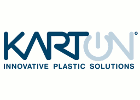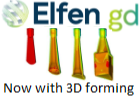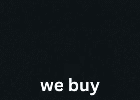In a video statement, Bertrand Cazes, Secretary General of Glass for Europe, warns that the European Commission ‘needs to accelerate’to deliverthe expected energy and CO2 emissions savings by 2030.
To Glass for Europe, the proposal is future proof and aligned with carbon emission reduction ambitions when it comes to its provisions on new buildings. Glass for Europe supports for instance:
The proposed requirement that all new buildings are zero-emission buildings in 2030 and as of 2027 for public buildings.
The maintained focus on energy efficiency while Member States are invited to give more prominence to healthy indoor climate conditions in buildings, including the availability of daylight that is uniquely provided by glazing.
The mandatory calculation and disclosure of the whole-life cycle Global Warming Potential (GWP) of new buildings as of 2030.
Provisions on building renovation are essential to the success of the policy framework since most buildings that will be used in 2050 are already constructed. Glass for Europe has placed most expectations on this critical aspect and Bertrand Cazes notes that: ‘The EC proposal has the merits of trying to bring into the legislation some of the concepts that were part of the Renovation Wave strategy’.Among these welcomed concepts are:
the introduction of Minimum Energy Performance Standards (MEPS),
the creation of renovation passports to equip building owners with works recommendations, possibly including on windows retrofitting, when planning a staged renovation of their building.
the new and more detailed national renovation plans.
Glass for Europe believes that these measures need to be fine-tuned and added substance so that they can deliver their full impact and drive upward both the quantity and depth of building renovation. An earlier time limit for the MEPS to upgrade worst-performing buildings would be desirable, while the introduction of the renovation passport should be made mandatory.
Finally, Glass for Europe regrets that the cost-optimality methodology used to define building components’ minimum energy performance requirements, among other things, will not be reviewed before 2026. It is a missed opportunity to improve the assessment of the energy performance of windows, thanks to the energy balance approach.
The flat glass industry is already delivering on the ground with its low-carbon solutions: high performance glazing to save energy from buildings and solar glass to contribute to on-site renewables. To make sure the flat glass and glazing industry can maximise its contributions to a decarbonised and sustainable building stock, Glass for Europe will work with policy makers to help finalise a robust revision of the EPBD.
























